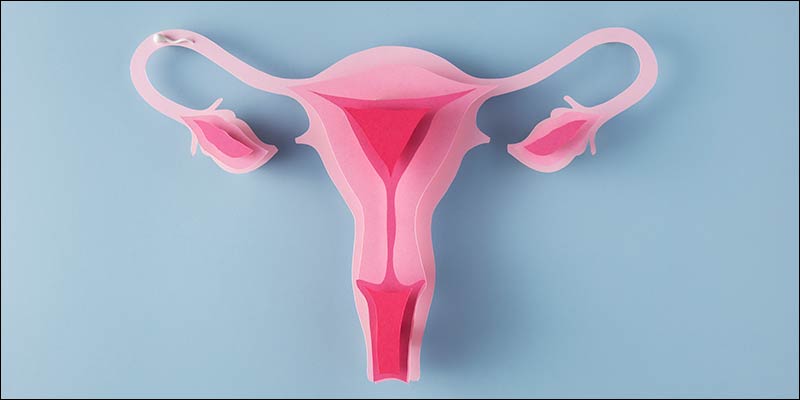Menopause is a natural phase in a woman’s life marked by several hormonal changes that can often lead to weight gain. While it’s a challenging time, adopting a specialized diet can effectively manage weight fluctuations during this period. In this blog, we present a tailored Menopause Diet 5 Day Plan to Lose Weight specifically designed to aid weight loss during menopause.
What Is Menopause

Menopause, a natural phase occurring typically in a woman’s 40s or 50s, signifies the cessation of her menstrual cycle. This transition is confirmed when a woman experiences 12 consecutive months without a period. However, menopause isn’t an abrupt event; it unfolds gradually. During this time, various symptoms like hot flashes, mood swings, and sleep disturbances can persist for several years, impacting a woman’s overall well-being. Understanding and managing these symptoms play a crucial role in navigating this transformative phase in a woman’s life.
Introduction to Menopause and Weight Gain
Menopause typically occurs in women between the ages of 40 to 50, accompanied by a decline in estrogen levels. These hormonal shifts can disrupt metabolism, leading to increased fat accumulation, especially around the abdomen. Factors such as slowed metabolism, hormonal imbalances, and lifestyle changes contribute to this weight gain.
Menopause Daily Diet Plan

Crafting a specific diet plan for menopause involves focusing on nutrient-dense foods that aid in managing weight fluctuations. The 5-day diet plan is strategically designed to target various aspects affected by menopause, such as metabolism, hormone balance, bone health, and mood swings.
1st Day: Revitalizing Start
- Breakfast: Kickstart your day with a nutrient-rich smoothie comprising kale, berries, Greek yogurt, and flaxseeds. This blend provides essential vitamins, minerals, and antioxidants to boost metabolism.
- Lunch: Enjoy a colorful salad loaded with leafy greens, grilled chicken, quinoa, and a light vinaigrette dressing. This balanced meal ensures sustained energy levels throughout the day.
- Dinner: Opt for baked salmon seasoned with herbs, accompanied by roasted vegetables and a side of brown rice for a wholesome and satisfying dinner.
2nd Day: Metabolism Boost
- Breakfast: Indulge in a hearty bowl of oatmeal topped with sliced fruits and a sprinkle of nuts. Oats are rich in fiber and help regulate blood sugar levels.
- Lunch: Savor a grilled vegetable wrap using whole-grain tortillas, packed with nutrient-dense veggies and a light hummus spread.
- Dinner: Relish a lean protein such as turkey breast along with steamed broccoli and quinoa for a balanced and low-calorie dinner option.
3rd Day: Energizing Choices
- Breakfast: Prepare a protein-packed Greek yogurt parfait layered with fruits and granola to kick off your day with sustained energy.
- Lunch: Enjoy a vegetable stir-fry with tofu or tempeh, seasoned with herbs and served over a bed of brown rice for a fulfilling midday meal.
- Dinner: Indulge in a light yet satisfying dinner with a spinach and feta-stuffed chicken breast accompanied by a side of roasted sweet potatoes.
4th Day: Vital Nutrients
- Breakfast: Fuel up with whole-grain toast topped with avocado and poached eggs, providing essential nutrients and healthy fats.
- Lunch: Delight in a colorful and nutritious Buddha bowl composed of mixed greens, chickpeas, roasted vegetables, and a drizzle of tahini dressing.
- Dinner: Opt for a broiled cod fish fillet with a side of steamed asparagus and quinoa for a light and protein-rich evening meal.
5th Day: Culmination of Wellness
- Breakfast: Indulge in a nutrient-dense smoothie blended with spinach, banana, almond milk, and a scoop of protein powder for a revitalizing start.
- Lunch: Relish a vibrant Mediterranean-inspired salad with mixed greens, grilled shrimp, olives, and a light lemon vinaigrette.
- Dinner: Conclude the plan with a vegetarian chili loaded with beans, vegetables, and spices for a comforting and nutritious dinner option.
The Menopause Weight Loss Tips

Menopause Diet Exercising
Another effective approach to combat weight gain during menopause is through exercise. Increasing physical activity becomes pivotal if shedding weight during this phase is among your fitness objectives. It’s crucial to acknowledge that with age, muscle loss occurs, leading to a decline in calorie burning efficiency. To optimize calorie expenditure, prioritize exercises that facilitate muscle gain.
Before incorporating muscle-building exercises into your routine, consult your physician for guidance. Exercise modalities vary, some utilizing bodyweight while others necessitate equipment or machinery.
Understanding the appropriate exercises that target menopause-related belly fat is essential. Consistency is key for optimal and sustainable results.
Getting Enough Rest
Insufficient sleep can contribute to weight gain during menopause. As menopause often leads to disrupted sleep patterns, putting stress on the body. Moreover, inadequate sleep triggers the release of cortisol, a hormone that boosts appetite.
Operating on little or no sleep may lead to overeating or increased snacking tendencies, elevating your overall calorie intake and fostering weight gain. Prioritize achieving sufficient and high-quality sleep to mitigate these effects.
Reducing Your Stress Levels
Entering the menopausal phase can be a source of stress for some individuals. Change, in general, can be overwhelming, and it’s important to note that menopause can bring about extreme irritability and fatigue. Allowing these symptoms to overpower you might strain relationships due to heightened irritability, subsequently adding to stress levels. Elevated stress, in turn, often triggers emotional eating, partly driven by the production of cortisol.
Cortisol, a stress hormone, influences blood sugar levels, causing cravings for salty and fatty foods, known for their high calorie content. Overconsumption of these food types creates a surplus of calories, contributing to weight gain.
Why Exercise is Important During Menopause
During menopause, your body stops producing estrogen, causing symptoms like hot flashes, sleep disturbances, and cognitive fog. This change also heightens the risk of heart disease, stroke, and osteoporosis. Decreased estrogen levels coincide with higher LDL cholesterol, lower HDL cholesterol, and an increased likelihood of developing type-2 diabetes.
Menopause Exercise Plan

Below are several exercises and their benefits for your body during midlife:
Strength Training
Consider incorporating heavy weightlifting into your workout routine. Not only does weight training help in building muscle, but it also provides support to your joints and can prevent future musculoskeletal issues.
Aerobic Exercise
As women age and estrogen’s protective effects decrease post-menopause, the risk of heart disease rises significantly. Engaging in heart-pumping exercises like running, swimming, or biking can notably lower this risk. These exercises not only benefit heart health and mental clarity but also contribute to an improved mood and better sleep, which can be challenging during menopause.
Yoga Practice
Participating in yoga, whether through online classes or personal practice at home, can effectively reduce elevated blood pressure associated with menopause. Additionally, it enhances flexibility and may aid in achieving better sleep.
Pelvic Floor Workouts
Hormonal fluctuations during perimenopause and menopause can lead to reduced blood flow to the pelvic floor and thinning of vaginal tissues, exacerbating symptoms like urinary dysfunction or pelvic organ prolapse. Strengthening exercises such as kegels can help fortify muscles supporting the bowel, bladder, and vagina. These exercises improve flexibility, strength, coordination, and blood flow.
Breathing Techniques
Implement belly breathing, where the lower ribs and belly expand upon inhalation rather than solely breathing into the chest. Begin lying on your back with knees bent, placing one hand on your chest and the other on your belly to feel the distinct breaths. Eventually, practice this deep breathing in various positions.
Walking
Walking yields numerous benefits, such as uplifting mood, reducing arthritis discomfort, and lowering blood pressure. An added advantage of walking is the uninterrupted time it provides for bonding with friends who may share similar menopause experiences. The social aspect of walking enhances commitment to the routine.
The Menopause Diet 5 Day Plan to Lose Weight Vegetarian
Opt for a diet rich in fruits, vegetables, and whole grains, prioritizing minimally processed options with high fiber content. Generally, a plant-based diet offers superior health benefits compared to other dietary choices. Consider incorporating legumes, nuts, soy, and low-fat dairy products into your meals for added nutritional value.
Diet Plan for Menopause Belly
To enhance your self-image and address menopause belly, prioritize regular exercise, a well-balanced diet tailored to your nutritional requirements, and stress management techniques. Safe methods exist to combat menopause belly, many of which you can implement immediately.
Emphasize plant-based foods like fruits, vegetables, and whole grains, and opt for lean protein sources such as fish and low-fat dairy. Reduce consumption of processed meats and saturated fats commonly found in meat, high-fat dairy products like cheese, and butter.
Tips for Success and Sustainability
Consistency and dedication are key to success with the menopause diet plan. Keeping hydrated, planning meals ahead, and seeking support contribute to sustaining the diet for long-term benefits.
Conclusion
Embarking on a dedicated 5-day menopause diet plan can significantly aid in weight management during this transitional phase. Coupled with regular exercise and a healthy lifestyle, this diet can effectively counteract the challenges of menopause-related weight gain.
FAQs
Q1. What is the fastest way to lose weight during menopause?
Engaging in both aerobic exercise and strength training can assist in shedding excess weight and maintaining a healthy body mass. When you build muscle, your body becomes more efficient at burning calories, aiding in better weight management.
Q2. What is the best diet for a menopausal woman to lose weight?
Similar to research on low-carb diets, the majority of studies examining the Mediterranean diet have involved both men and women rather than focusing solely on perimenopausal or postmenopausal women. In a specific study involving individuals aged 55 years and above, adhering to a Mediterranean diet showed notable decreases in abdominal fat for both men and women.
Q3. Is it necessary to follow the diet plan exactly for five consecutive days?
While it’s beneficial to stick to the plan for optimal results, flexibility is allowed. Adjustments can be made while ensuring the overall principles of the diet are followed.
Q4. Can men also follow the menopause diet plan?
The diet focuses on addressing menopausal changes in women’s bodies. Men can benefit from similar dietary choices but may not experience the same hormonal changes.
Q5. Are supplements necessary while following this diet plan?
It’s recommended to consult a healthcare professional before incorporating supplements. However, a well-balanced diet usually fulfills nutritional requirements.
Q6. How soon can one expect to see results with this diet plan?
Results vary for individuals, but following the plan diligently can show noticeable changes within a few weeks.
Q7. Is it safe to continue this diet plan for an extended period?
Consulting with a healthcare professional for long-term diet plans is advisable to ensure it aligns with individual health needs.

